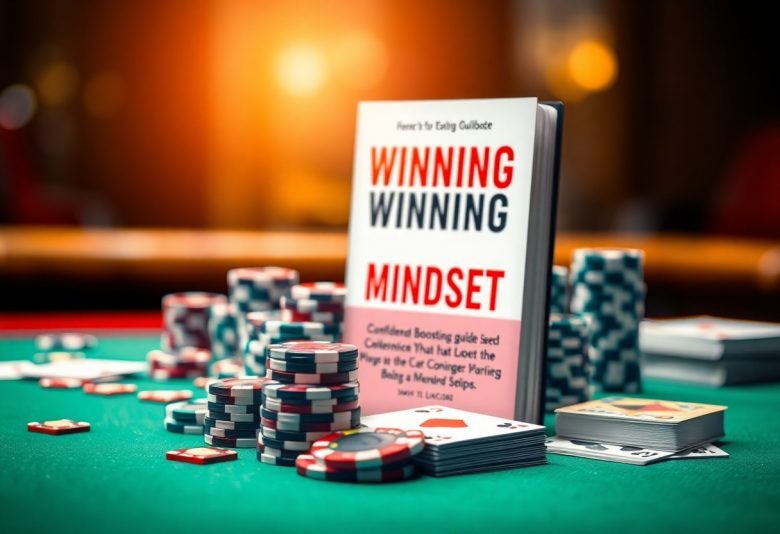Most poker players experience a losing streak at some point, which can significantly shake your confidence. Understanding how to rebound and regain your self-assuredness is necessary for long-term success at the tables. In this guide, you’ll explore effective strategies to overcome setbacks, learn from your mistakes, and cultivate a winning mindset. Armed with the right approach, you can turn your experience into a powerful motivator and enhance your game.
Understanding the Factors Behind Losing Streaks
To effectively build confidence after a losing streak, it’s crucial to understand the underlying factors contributing to your downturn. Common reasons may include emotional turmoil, inadequate strategy, and fluctuating table dynamics. Here are some key aspects to consider:
- Emotions
- Decision-making
- Table Variance
Perceiving these elements can help you pinpoint areas of improvement and create a plan for your return to form.
Common Psychological Triggers
One significant aspect of losing streaks is the psychological triggers that can impact your performance. Often, feelings of frustration or anxiety arise, leading to further mistakes in your gameplay. Recognizing these emotional responses is vital for improving your game and regaining your confidence.
External Factors Impacting Performance
The environment in which you play can also significantly influence your game. Numerous external factors can create distractions or contribute to a less-than-ideal state of mind during your sessions:
- Distractions
- Bankroll Management
- Peer Pressure
Assume that being aware of these factors can help you better manage your focus and performance at the tables.
Behind every losing streak are potential external influences that can disrupt your game flow. Factors like noise levels in the playing area, your financial situation, or even the behavior of other players can weigh heavily on your mindset. Ensuring a conducive playing environment, maintaining a stable bankroll, and managing social pressure effectively are vital for maintaining optimal performance. Assume that cultivating a positive setting will enhance your gameplay and restore your confidence.
How to Shift Your Mindset
While a losing streak can shake your confidence, shifting your mindset is vital for recovery. Instead of dwelling on past losses, focus on learning and improving your game. View challenges as opportunities to grow, enabling you to rebuild your self-assurance and approach future games with renewed optimism.
Embracing a Growth Mindset
Now is the perfect time to embrace a growth mindset. This approach allows you to see every loss as a stepping stone toward improvement. By recognizing that your skills can always be developed, you will approach each hand with curiosity rather than fear, making the experience far more enjoyable and enriching.
Practicing Positive Self-Talk
Growth in your confidence comes from fostering an internal dialogue that supports you. Positive self-talk reinforces your ability to bounce back, so replace damaging thoughts with affirming statements about your abilities and potential. This practice not only boosts your morale but also enhances your focus during games, which is vital for long-term success.
Mindset shifts are often transformative; positive self-talk can significantly alter your perception. Start by identifying negative statements you make and consciously replacing them with uplifting affirmations. By telling yourself that you have the skills to improve, you create an environment that fosters resilience and growth. Try to recite these affirmations daily, emphasizing that every setback is an opportunity for learning, ultimately cultivating a habit of self-encouragement that enhances your overall gaming performance.
Practical Tips to Regain Confidence
Any successful poker player knows that regaining your lost confidence can be achieved through disciplined practice and self-awareness. Consider the following tips:
- Focus on your strategy to identify areas for improvement.
- Participate in low-stakes games to build confidence without pressure.
- Keep a journal of your plays and emotions to track progress.
- Engage in community discussions for support and insights.
After implementing these tips, you’ll find your confidence beginning to rebuild.
Setting Realistic Goals
Even when you feel disheartened, it is necessary to set realistic goals that enable you to focus on gradual improvement. Start with smaller, achievable targets, such as mastering a specific poker concept or improving your decision-making in a particular situation. By concentrating on these bite-sized achievements, you can enhance your gameplay, measuring success in achievable increments rather than overwhelming yourself with lofty aspirations.
Reviewing and Learning from Past Games
The effort to enhance your confidence also involves taking the time to review and learn from your past games. Analyzing your gameplay can provide insights and strategies that were overlooked during the heat of competition.
Learning from your previous games is an effective way to correct mistakes and bolster your confidence. Focus on the hands you played well and acknowledge what worked, but do not shy away from evaluating errors. You need to identify the dangerous plays that led to your losing streak, as well as the positive decisions that paid off, allowing you to refine your understanding of the game. By adopting this analytical approach, you can convert past experiences into valuable lessons, guiding your future decisions at the poker table.
The Importance of Practice and Preparation
All successful poker players understand that practice and preparation are vital for building confidence. Engaging in regular practice helps you refine your skills and develop a deeper understanding of the game. Additionally, setting up mock games, analyzing your previous play, and learning from your mistakes can significantly improve your performance. When you invest time in honing your skills, you not only enhance your gameplay but also boost your confidence, giving you the edge needed to overcome any past losing streaks.
Sharpening Your Skills
You should actively work on sharpening your skills by playing consistently and reviewing your hands. Utilize online platforms or local clubs to gain experience and exposure to various playing styles. Track your progress and don’t hesitate to seek feedback from other players to identify areas for improvement.
Developing a Consistent Strategy
There’s no one-size-fits-all approach in poker; however, developing a consistent strategy is vital for long-term success. Establishing a clear plan for how to approach each game allows you to stay focused and disciplined, minimizing emotional decisions.
Your strategy should include setting clear objectives, assessing your opponent’s tendencies, and adjusting your play style accordingly. A well-thought-out plan will keep you grounded during challenging situations and help you minimize losses. Emphasizing adaptability while maintaining core principles is key. By sticking to your plan and remaining disciplined, you can confidently navigate through tough hands and stay resilient in the face of adversity.
Seeking Support from Others
Now that you’re ready to bounce back from your poker losing streak, seeking support from others can significantly boost your confidence. Engaging with fellow poker enthusiasts allows you to connect, share experiences, and gain different perspectives. Whether through online forums, local meet-ups, or social media, surrounding yourself with like-minded individuals can provide the motivation and encouragement you need to rebuild your self-esteem and improve your game.
Engaging with Poker Communities
Poker communities offer a vital space for players to connect, develop strategies, and support each other. These platforms provide direct access to resources, discussions, and the opportunity to ask questions. By immersing yourself in these communities, you can gain insights from seasoned players and enhance your skills, helping to restore your confidence after setbacks.
Sharing Experiences and Learning from Peers
An invaluable aspect of engaging with poker communities is the opportunity to share experiences and learn from your peers. Discussing your challenges with others who have faced similar situations creates a sense of camaraderie and reduces feelings of isolation. Hearing about their struggles and triumphs can inspire you to adjust your approach, while acknowledging that you’re not alone in your experience. Participating in discussions and actively listening can offer you new strategies and insights to overcome your current difficulties.
Others in the poker community can provide a wealth of knowledge and support that you might not find on your own. By opening up about your losses, you can gain valuable feedback and learn what strategies worked for them during tough times. This sharing process not only lightens the emotional burden but also fosters a learning environment where every insight counts. Engaging with your peers will remind you that setbacks are part of the game, and they can be stepping stones toward future success.
Building Mental Resilience
Unlike many believe, building mental resilience after a losing streak in poker is achievable through a dedicated approach. It is imperative to cultivate a strong mental framework that helps you bounce back from setbacks. By developing resilience, you not only enhance your ability to cope with losses but also improve your overall gameplay. Your mental toughness will allow you to face challenges head-on, adjusting your strategy and mindset as needed while maintaining focus on long-term growth.
Techniques for Stress Management
Management of stress in poker can significantly impact your performance. To alleviate anxiety, practice deep breathing exercises or mindfulness techniques that ground you in the present moment. Engaging in physical activities or hobbies outside of poker can also serve as an effective outlet for stress, allowing you to recharge and regain focus when you return to the game. Balancing your mindset through these strategies fosters a calmer approach to decision-making at the poker table.
Visualization and Mental Rehearsal
Building mental resilience also involves the potent practice of visualization and mental rehearsal. By envisioning yourself in challenging poker scenarios, you effectively prepare your mind and body to face similar situations in reality. This technique helps you gain confidence, as you become familiar with potential challenges and develop a strategy for overcoming them. When you visualize success and focus on your process, your brain can create neural pathways that enhance your performance during actual gameplay.
Resilience is further strengthened through consistent practice of visualization and mental rehearsal. Envision yourself making the right decisions, confidently playing through tough hands, and ultimately achieving success. This process helps turn anxiety into excitement by training your mind to react positively in high-pressure situations. By practicing mental scenarios where you handle losses constructively and visualize your way to victory, you build a deeper sense of internal strength that benefits your overall poker journey. Invest time in this mental exercise, and you’ll feel more prepared and confident when facing the uncertainties of the game.
Final Words
Presently, rebuilding your confidence after a losing streak in poker involves a mix of self-reflection and strategic adjustments. Begin by analyzing your past games to identify mistakes and areas for improvement, which can help you regain focus. Set achievable goals to enhance your skills gradually and engage in practice sessions to rebuild your comfort level with the game. Surround yourself with supportive peers who can encourage your growth. By taking these steps, you can nurture a positive mindset that will empower you to face future challenges with renewed confidence.




